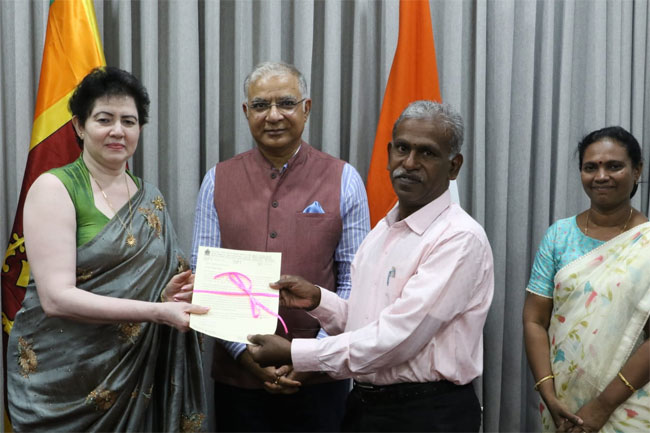By: Isuru Parakrama
October 20, Colombo (LNW): The closing ceremony of a three-month STEM teacher-training initiative, funded through Indian grant assistance, was recently held at the Ministry of Environment, Wildlife, and Plantation Infrastructure in Sri Lanka.
The programme was designed to improve the quality of education in plantation areas by equipping teachers with advanced knowledge in key STEM subjects.
The event saw the participation of several distinguished figures, including the Indian High Commissioner to Sri Lanka, Santosh Jha, and senior officials from the Ministry of Education and Science and Technology, as well as the Ministry of Environment.
This initiative, a response to a request from the Sri Lankan Government, was part of India’s multi-sectoral grant of INR 750 million, commemorating 200 years since the arrival of the Indian-origin Tamil community in Sri Lanka.
The programme commenced in July 2024 with the arrival of 19 Indian educators specialising in STEM (Physics, Chemistry, Mathematics, English, and Biology).
After an orientation hosted by Sri Lanka’s National Institute of Education, these teachers began their work in plantation schools, offering training to over 2,000 local teachers across 40 centres in Central, Uva, Sabaragamuwa, and Western provinces.
Spanning 10 weeks, the initiative aimed to modernise teaching approaches and enhance the quality of STEM education in under-resourced schools.
The trained teachers and schools expressed great satisfaction with the programme’s impact and called for its continuation in the future.
During the closing ceremony on 18th October 2024, Secretary of the Ministry of Education, Mrs. J.M. Thilaka Jayasundara, praised the effectiveness of the programme, noting its significant contribution to improving the education system in the region.
She extended heartfelt thanks to the Indian Government for its support.
Indian High Commissioner Santosh Jha remarked that this teacher-training initiative further strengthened the historic ties between India and Sri Lanka, adding to a long list of India-supported development projects in sectors such as education, housing, healthcare, and renewable energy.
He highlighted that such collaborations reflect India’s commitment to supporting Sri Lanka’s national priorities and positively influencing the everyday lives of its people.

